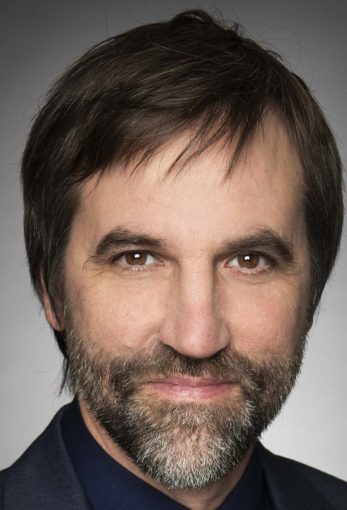
Sluggish launch for Gravity
Domestic sci-fi series plays better at home than in U.S.

Making sense of new technology
One of the problems with working in the audiovisual industry is that we all inhabit a technological bubble. Gadgets that we see at conferences and expos are always on the verge of ‘changing consumers behavior forever.’ Reports about Japanese or Korean innovations are always filled with overblown forecasts about revenues and growth.

Gunn gets ready for Games 2.0
It might not be difficult to turn a profit in the casual gaming market, but Nathon Gunn is gunning for more with his new venture, Social Game Universe.

Moves & Signings
Jim Sherry has stepped down as co-president of Maple Pictures, going back to a consulting position with the Toronto distributor after less than a year.

Straight Up & Down
+ The NFB has signed an airline distribution deal with Skeye Inflight Entertainment, providing its catalogue to airlines operating outside Canada. The agreement will kick off with airline-friendly fare, such as docs, Oscar winners and shorts.

Playback Barometer
Two conventional stations are closing while another has found a white knight in new arrival Bluepoint – which softens the blow and proves once again that things are never as hopeless as they seem, unless you work at the E! stations in Victoria or Red Deer. The forecast is also growing dark for documentary-makers, with the shuttering of both The Lens and Wild Docs – expect lots of phone calls, Passionate Eye – and for Canadiana, which will go unrepresented at next month’s opener of TIFF.

The perils of Yank scribes
Is a ‘Canadian drama’ still a ‘Canadian drama’ if Americans work in the writers room?’

Saving the whales
Paul Watson first gained notoriety as an early member of environmental crusaders Greenpeace (with them from 1971 to 1977, their split was acrimonious – he says he was a founding member, while they say he wasn’t. He left in 1977). As the founder of the Sea Shepherd Conservation Society and star of Animal Planet’s hit show Whale Wars, Watson still isn’t one to mince words. His direct action approach to activism has consistently generated controversy (a peek at the Whale Wars message forum can vouch for that) and its share of danger, but, he argues, it also generates results that are for the betterment of the planet. But Watson doesn’t care what people think – he says his clients are the whales.

Paperny Films: Unscripted insights
People who don’t know David Paperny tend to view him as that quirky Vancouver producer behind the S&M TV series Kink; a colorful and lively character who wears a black cowboy hat and shows up at parties in leather pants.

3 things you may not know about… Kevin Tierney
Producer Kevin Tierney

Story takes indie approach
Richard Story has been a filmmaker since he picked up a black-and-white camera back in 1980. But when APTN put out a call for submissions to create a pilot for potential development into a series, he decided to make the leap to TV and created a script called The Time Traveler.

Canadian copyright battleground
Canada has emerged as a major battleground in the contentious U.S.-led global campaign against intellectual property piracy. But, given the number of people with money at stake and the potentially far-reaching economic, political, and social implications of the issues in question, it’s often hard to tell fact from fiction. It’s equally difficult to sort out the array of current and proposed Canadian, U.S., and international laws when it comes to intellectual property piracy.

Two years later, where is Canada on piracy?
Two years ago, Ottawa enacted legislation criminalizing camcording in cinemas. And yet in May, the Office of the U.S. Trade Representative placed Canada on its Priority Watch List – claiming ‘estimated trade losses due to copyright piracy’ in Canada in 2008 of US$742 million.

Internet still ‘too new’ for regulation: Rogers
If a car ties up a whole lane on a busy highway for an entire day, it will create a problem for the other cars. That is exactly what bandwidth-hungry peer-to-peer files do, so the traffic must be managed.

Maple snags Python catalogue
Maple Pictures has found the Holy Grail, and a dead parrot. The Toronto distributor has signed a multi-year deal to represent the Monty Python Film Collection. The sales agent rights for Canadian television puts Maple in charge of cult titles including 1975’s Monty Python & the Holy Grail, The Life of Brian and all 45 episodes of Monty Python’s Flying Circus.




 The definitive CDN broadcast and production resource.
The definitive CDN broadcast and production resource.










